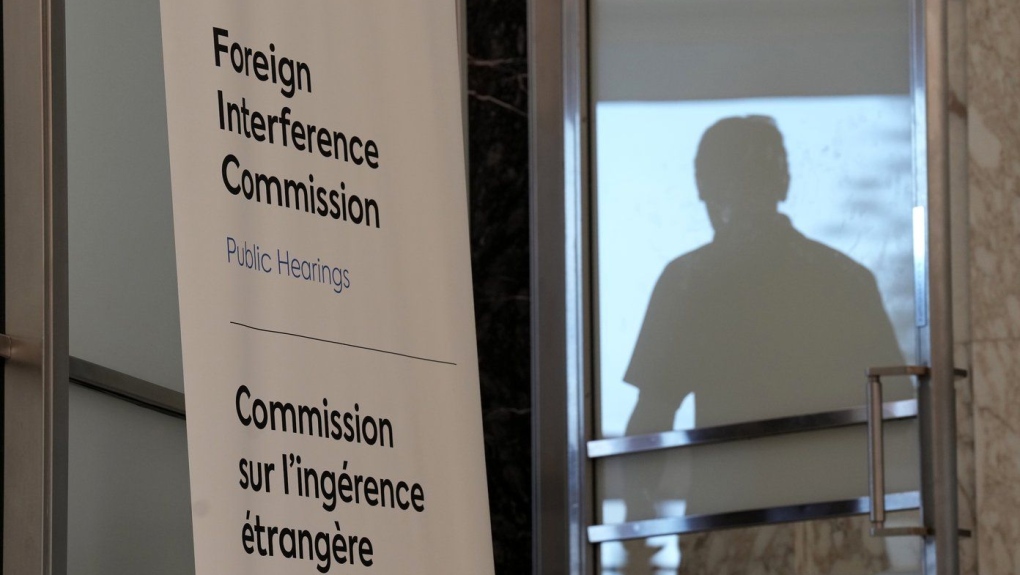Canada’s Chinese community has long been targeted by political rhetoric, disinformation and propaganda originating from the Communist Party in Beijing, media industry veterans told a public inquiry Tuesday.
Hong Kong-born Victor Ho, who came to Canada in 1997 and worked in newspaper and radio journalism for many years, believes that when the Chinese government attempts to influence or intervene in Canada’s democratic process, it is most effective. He says one of the tools is Chinese media.
From Toronto to Vancouver, many Chinese-language media outlets operate under “tremendous influence” from the Communist Party, Ho said.
The ongoing Commission of Inquiry’s latest hearings focus on detecting and countering foreign interference. The final report of the investigation is expected to be submitted by the end of the year.
Mr Ho was part of a committee of media representatives from the Chinese and Indian communities, as the study focused on the influence of mass communication on public attitudes.
The investigation heard claims that China pressured advertisers and that India denied travel documents as a tactic to shape the narrative about the Canadian government.
In addition to controlling traditional media, the Chinese Communist Party also exports digital influence through popular Chinese social media platforms such as WeChat, TikTok and Weibo, Ho said.
“These platforms are being used to flood local Chinese communities with Chinese Communist Party narratives that serve as a means of political indoctrination disguised as social interaction.”
Ronald Leung, host of the weekly television interview show, pointed to the challenges of combating misinformation and disinformation emanating from foreign adversaries.
“We are in an information war,” said Leung, who was also born in Hong Kong and came to Canada as a student in 1983.
Asked if he practices self-censorship on the air, Leung said: “I am very careful, and I am always very careful when I speak on the radio.”
Leon said he knows he shouldn’t cross “the red line” and if he did, “I don’t think I would be able to continue doing my job of presenting a Canadian perspective on international issues. And I’m still working in China.” media. “
Witnesses largely agreed with a July 2023 intelligence assessment submitted in a recent investigation that pro-Communist rhetoric is “flooding Canada’s Chinese-language media.”
“Censorship (including self-censorship) is widespread, and alternative media voices are largely absent or marginalized in mainstream Chinese-language media,” the document, prepared by the Canadian Security Intelligence Agency and the Privy Council’s Office of Intelligence and Evaluation, says. “There is,” he said. “This includes traditional media such as newspapers and new media provided by online platforms and applications such as WeChat.”
Gurpreet Singh, host of a daily 30-minute talk show, told the inquiry on Tuesday that the Indian government had compiled documents on him that would discredit him in public over issues hot in the news. He said it was being used to hurt him.
“It’s based on a lot of misinformation, which is also very disturbing. They’re describing me as anti-India and anti-national,” said Singh, who immigrated to Canada from India in 2001.
Singh said he has also faced backlash on social media. “I stopped paying attention to it because it affects your sanity anyway.”
A senior official with the Canadian Radio-television and Telecommunications Commission testified Tuesday that the federal broadcasting regulator plays a “relatively minor role” in identifying and countering foreign interference.
“To my knowledge, the number of complaints we receive specifically regarding foreign interference is relatively small,” said CRTC Broadcast Director Scott Shortliff.
“We are not integrated into the national security framework, so we are not playing a major role, at least so far.”
Shortliff said the CRTC has received complaints about alleged propaganda, but stressed that officials are “very reluctant to be the arbiters of what is truth and what is propaganda.” .
“We’re leaning instead toward saying Canadians should have a plurality of sources of information so they can make their own decisions.”
This report by The Canadian Press was first published Oct. 1, 2024.

